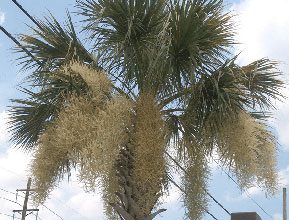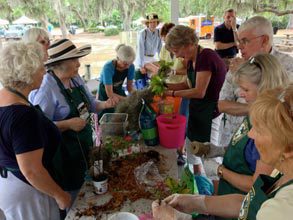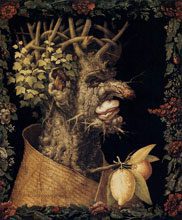Okay, it’s time to get off our collective duffs and plant a real vegetable garden this spring. Call it a Victory Garden, a ‘Yes, We Can’ Garden or a Recession Buster Garden… growing our own food will make our families and community more secure, able to weather any storms ahead.
 Right now you can plant beets, cabbage, potatoes, onions, broccoli, collards and even lettuce. You can get baby plants or seeds for those from Robert Bowles at Burton Feed and Seed, just off 21 at 3 Broad River Blvd in Beaufort.
Right now you can plant beets, cabbage, potatoes, onions, broccoli, collards and even lettuce. You can get baby plants or seeds for those from Robert Bowles at Burton Feed and Seed, just off 21 at 3 Broad River Blvd in Beaufort.
I’m not talking about two tomato plants in a pot, like we’ve all done in the past. I’m talking about a real live, carefully planned, producing vegetable garden that can feed your family and neighborhood.
Seeds are the way to go; they’re the cheapest. Besides Burton Seed and Feed, or even Lowe’s, you can go online to sites like The Southern Exposure Seed Exchange (www.southernexposure.com) and order 2 grams of broccoli seeds (enough to make 600 plants) for $1.99! You can’t beat that return on your investment. And the great news is that we live in a prime growing region; they used to grow vegetables here and ship them up North! We can grow something every month of the year… especially near the water. The neat thing about Southern Exposure Seed Exchange is that it has seeds that have evolved in our hot Southern climate.
You’re going to be hearing words like ‘agrobiodiversity’ much more in the future, mainly because the big seed companies, in recent years, have stopped selling the diversity of seeds our grandparents once used to focus on a much smaller line of ‘best sellers.’ The problem is that those best sellers may not do well in our area; and this approach cuts down on biodiversity. Google ‘Southern Seed Legacy Project’, and you will find a group of people dedicated to our southern biodiversity. Through their Pass Along project, they’ll give you free seeds if you promise to save the seeds from what you grow and pass them along to other farmers. Check out these names: Dark Pot Liquer Butter Beans, Wonder Pea, Mary Seo’s Black Bean, Cutshort bean, White Creaseback Bean, Racoon Corn, 6 Week Pea, Antique Crowder. These are just a few of the 460 varieties of Southern Heirloom seeds that this nonprofit organization offers for sale online. Another good seed source is Seed Savers Exchange at www.seedsavers.org. Or try Thompson and Morgan, the granddaddy of international seed companies.
Here’s something else to keep in mind: if you grow some interesting vegetables, you can sell them at the farmer’s market for some extra dough, or even sell them directly to restaurants. The better chefs are always looking for something to make their dishes unique. Go for things like ‘baby vegetables’ and others that have a lot of visual appeal.
If it’s too cold for some varieties to be sown outside now, find a sunny window somewhere and start a flat of seedlings. You can buy these flats at Lowe’s or online; you can even make your own. Once you get going, you might want to think about getting a freezer and/or brushing up on your canning and preserving skills so you can enjoy the fruits of your labor for many months. Speaking of fruits, we can grow orange, grapefruit, pear, figs and peaches here. There is an heirloom orchard section at Southern Seed Legacy.
Now that you’re thinking about starting a real vegetable garden, you might want to also consider chickens. They eat bugs, are mobile ‘fertilizing machines,’ and they give eggs and provide meat. Robert at Burton Feed and Seed says he will be getting in his first big batch of chicks right before Valentine’s Day. He will have Production Reds, Rhode Island Reds, and Araucanas… the ones that lay the green eggs Martha Stewart loves so much. The Araucana Club of America has a great newsletter (www.araucana.net). There’s a really interesting Poultry Show in Orangeburg a couple of times a year. You won’t believe how many neat looking birds they have on display. I’ve heard there’s also a poultry auction at a Mr. Clackston’s, near Snyder’s crossroads, between Yemassee and Walterboro, every Saturday. My friend Woody Collins has a bunch of chickens, and he gives me eggs with the orange-est yolks I’ve ever seen. His secret? He feeds them shrimp shells and heads (high in Omega 3’s). In downtown Atlanta, there’s a group of friends who all have chickens now. They have traveling cocktail parties where they all walk around and visit each other’s coops.
If you get more ambitious and want goats – goat cheese, anyone? – Robert at Burton Seed and Feed knows a guy who sells them. If you get even more ambitious and want a cow, check out the livestock auction in Springfield S.C. Google Springfield Livestock Marketing Center for directions. They also auction chickens, pheasants, ducks, and geese later in the day on auction days.
Did you know that cows used to wander all over downtown Beaufort? My friend Bill Black lives in a historic house on Old Point, and he says records show that they use to have 25 chicken coops in the front yard, a fig grove, and a small herd of beef cattle in the backyard! And this wasn’t too long ago. I checked with Historic Beaufort and they told me it’s still legal to have farm animals in the city limits. No laws against it were ever passed because it was so important to peoples’ survival before the era of supermarkets.
So before the heat gets too much for even the strongest plants (and gardeners) let’s all get growin’!
To learn more:
Clemson’s Home and Garden website (hgic.clemson.edu) has lots of fact sheets to help you. Laura Lee Rose, lrose@clemson.edu, the consumer horticultural agent for Beaufort County, can also help with any of your gardening problems. Laura Lee is enrolling a Master Gardener class on Hilton Head March – June. It is 14 weeks of instruction on topics from Botany, Soils, to water quality education. Applications are online at lowcountryces.org







